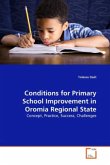This book reports an exploration of the perceptions and lived experiences of participants in the MASTEC school improvement project in the Limpopo province of South Africa. The study sought to examine teacher educators' and school teachers' perceptions of the implementation of the MASTEC programme in the different contexts of its participant schools. A phenomenological methodological framework was employed and the research design comprised of multiple qualitative methods of data generation, namely focus group discussions, participant observation and document examination. Amongst the key findings emerging a number of benefits of MASTEC were identified for the participating schools and for individual participants. These related to the upgrading of some schools' infrastructure and teachers' development of more innovative teaching and planning skills. However, the programme was reported to have worked better for some schools than others; this may well speak to the different contexts in which it was implemented. This research has identified several implications for policy- making, further research and practice.
Bitte wählen Sie Ihr Anliegen aus.
Rechnungen
Retourenschein anfordern
Bestellstatus
Storno








